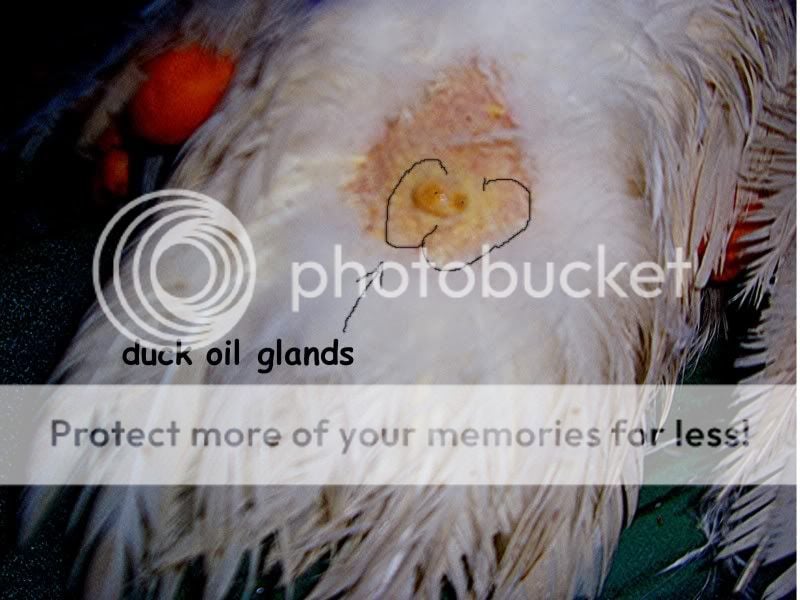Hey everyone...
Lately my duck Ming Mei has been getting completely soaked during bath time and has a hard time drying off (even after and hour of preening). I bought some spray meant for birds (like parakeets) that contains a preen oil and some soothers for irritated skin and have been spraying her with it after her baths, but nothing seems to work. Her oil gland doesn't look weird or anything... any suggestions on how to get my ducky water proof again?
Like can I bathe her and soap her up to clear any gunk away and let her start the oiling process again?
Or should I take her to the vet?
Or should i put something on her?
Or not let her bathe for a few days?
Lately my duck Ming Mei has been getting completely soaked during bath time and has a hard time drying off (even after and hour of preening). I bought some spray meant for birds (like parakeets) that contains a preen oil and some soothers for irritated skin and have been spraying her with it after her baths, but nothing seems to work. Her oil gland doesn't look weird or anything... any suggestions on how to get my ducky water proof again?
Like can I bathe her and soap her up to clear any gunk away and let her start the oiling process again?
Or should I take her to the vet?
Or should i put something on her?
Or not let her bathe for a few days?
Last edited:








